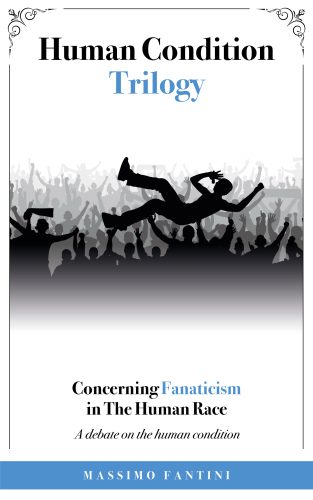 About Concerning Fanaticism in The Human Race by Massimo Fantini:
About Concerning Fanaticism in The Human Race by Massimo Fantini:
Elijah is a promising young lawyer, in love with his work and confident in the potential of the human race.
His law firm’s senior partner gives him his first important assignment. Elijah will have to follow the case of Leonard, an elderly engineer who lives in Montepastore, a small village in the Bolognese Apennines (Italy).
Leonard’s question concerns the supplementary contribution that engineers enrolled in the professional register are required to pay to Inarcassa, the Engineers’ Pension Fund. At first, the case seems simple. It was the subject of a previous ruling by the Court of Cassation. But Leonard is not satisfied with an institutional response. He wants to know why. He wants to know what hides behind the Supreme Court’s ruling.
Leonard’s demands grow meeting after meeting, and the subject of the dispute widens to include ethical, religious, and historical concerns.
As in the previous manuscripts, questions about the human condition are at the center of this philosophical debate. In the absence of answers, what is the point of writing about anything else?
Buy the book:
Author Bio:
My name is Massimo Fantini. I am an Italian author and free thinker, writing from my home in the hills just outside Bologna. In quiet moments, when I am neither writing nor working, I enjoy classical music, particularly orchestral works and Italian opera.
I graduated from a university in Bologna with a degree in civil engineering. However, the studies of my youth do not represent my life’s passion—that is, delving into the realities which unite all of humanity: suffering, frustrations, conflicts, and the human reactions to these. These are the events that take every human as an innocent in the crib and twist and turn them into 8.1 billion unique (but intimately connected) forms.
In short, I am obsessed with exploring the intimate recesses of the human condition.
In 2018, entirely dissatisfied with my job, I sought a new form of expression. Thus, I began to write.
Over time, I experimented with many kinds of writing, wondering how best to give my ideas form. Then, I found my voice through stories, giving life to characters who explore, triumph, and fail for us to watch.
In each installment of my Human Condition Trilogy, these same all-encompassing issues are approached from different directions, under different circumstances, and by different characters.
Echoing the sentiment of Heraclitus, no two people may look at the same problem the same way, because it is different to each. From the old and cynical Leonard in Concerning Fanaticism to young Tommaso (a character inspired by my own youth) in Concerning Intellectual Suicide, I tried to shed light on a path that is a constant part of our lives, but also constantly shifting.
Through my writing, I encourage readers to find their own perspective on life. Rather than embracing the comfortable mold that society provides, like a goldfish “free” to swim around in its little bowl, I hope my readers can use my books as a stepping stone toward their own unique way of thinking. And then, I wish them the freedom to pursue it.
Art is wonderful because it is a representation of what we otherwise cannot express. I seek not to provide myself and my readers with a mere distraction (what so often passes for “entertainment”). Not a hole in which to stick our heads for a few hours, only to emerge weakened and even less able to face our reality. Rather, I offer up a representation of our shared condition. The human condition.